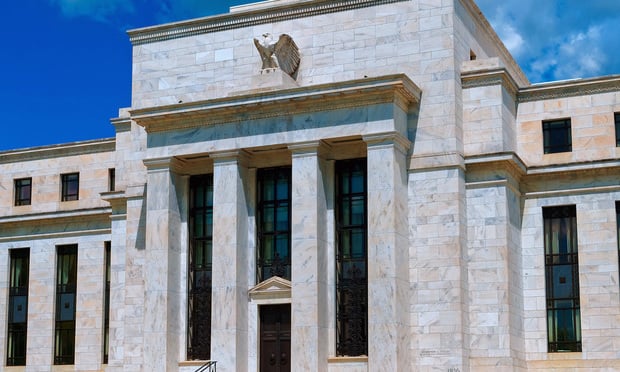 Credit/AdobeStock
Credit/AdobeStock
Just before Thanksgiving, nine trade groups filed a letter with the Federal Reserve asking for a 90-day extension to the Fed's notice of proposed rulemaking (NPRM) concerning the Debit Card Interchange Fees and Routing (Regulation II) due to the "complex" nature of the proposed rule.
CUNA, NAFCU and seven other trade organizations jointly filed the letter on Nov. 22 stating, "The NPRM proposes significant changes to the provisions of Regulation II related to interchange fee caps. The NPRM would substantially reduce the interchange fee cap and permit the Board to amend the interchange fee cap every two years without engaging in a notice and comment rulemaking process."
Recommended For You
According to the groups, the current proposal would:
- Reduce the base component of the interchange fee cap to 14.4 cents (down from the current 21 cents), reduce the ad valorem component to 4.0 basis points (down from the current 5.0 basis points) and increase the fraud-prevention adjustment to 1.3 cents (up from the current one cent).
- Update all three components of the interchange fee cap (base, ad valorem and fraud prevention) every other year, starting in 2025, by directly linking the components to data from the Board's biennial survey of large debit card issuers, without public comment.
The Fed proposed the changes at an October meeting, and comments are currently due Feb. 12.
The groups stated, "For complex proposals such as this — which require thorough analysis of the underlying data and which would provide for future amendments to Regulation II that would not be subject to the notice and comment rulemaking process — the Office of the Federal Register has indicated that extended comment periods of 180 days or more are appropriate."
The letter continued, "To thoughtfully opine on the NPRM, the Associations need this additional time to collect current and historical data from our members and analyze such data against the Board's proposed interchange fee caps. The data presented to support the Board's proposal is complex, dated and incomplete, requiring the private sector to invest significant time to digest and supplement it."
READ MORE: The Joint Extension Request letter.
© 2025 ALM Global, LLC, All Rights Reserved. Request academic re-use from www.copyright.com. All other uses, submit a request to [email protected]. For more information visit Asset & Logo Licensing.








